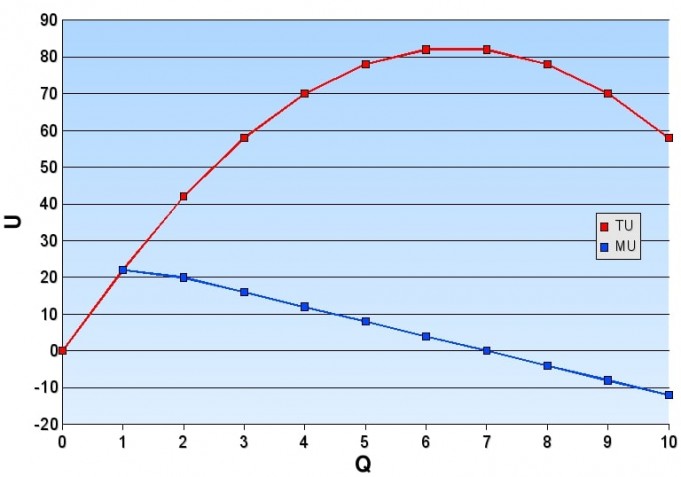The Law of Diminishing Marginal Utility
The law of diminishing marginal utility shows that as a person consumes a product or an item, the utility or satisfaction from the item fades as they consume more and more of that item. For example, a person might buy a specific type of cereal for a while. The person may soon buy that less, and choose a different kind of cereal or buy other snacks because the satisfaction they were initially getting from the cereal is decreasing.
In economics, the law of diminishing marginal utility is defined as- The marginal utility of a service or good declines after the increase in the item’s supply. The law of diminishing marginal utility can be used to explain other economic phenomena like time preference.
Understanding the Law
The marginal utility may decrease and diverge into negative utility. There are chances that marginal utility might become entirely unfavorable to consume for another unit of the item. Therefore, the first unit of consumption for any item should typically be the highest, with every unit of consumption to follow, sticking to less and less utility. Buyers handle the law of diminishing marginal utility by consuming and utilizing multiple quantities of numerous goods.
The Law and Marketing
Marketers use the law of diminishing marginal utility as they want to keep marginal utility high for items they sell. An item is consumed because it provides satisfaction to the buyer. But too much of an item might mean that the marginal utility arrives at zero because buyers have had enough of an item and are satiated. Of course, marginal utility depends on the buyer and the product being consumed.
Assumptions of Diminishing Utility
For the law to be correct and operative, the following facts have to be valid throughout when the law operates:
- The income level of the consumer should be constant.
- The consumer should have a rational mindset wherein he/she seeks to maximize their satisfaction.
- The units consumed should be identical, i.e., their size, color, pattern, taste, shape should be the same.
- Utility derived from the consumption should be measurable and must be expressed in quantifiable units.
- Consumption should be uninterrupted and continuous. Consumption punctuated by time intervals causes the satisfaction levels to change.
Note- A little difference in any of these aspects might cause the consumer’s satisfaction and experience level to vary, and the Law of Diminishing Marginal Utility will not be operative.
Exceptions of Diminishing Utility
The law defines the satisfaction derived from the consumption and utilization of the same commodity begins decreasing after a point of time. However, some commodities do not stick to this. That means the satisfaction level derived from the commodities will keep increasing. It will not decline or reduce. These commodities are as follows:
- Knowledge and innovations.
- Rare artifacts, antiquities, and stamps.
- Precious gems, goods, and jewelry
- Money – the more, the better.
- Consumption of intoxicants like liquor which makes the buyer lose his/her rational mindset. Hence, the law becomes inoperative.









